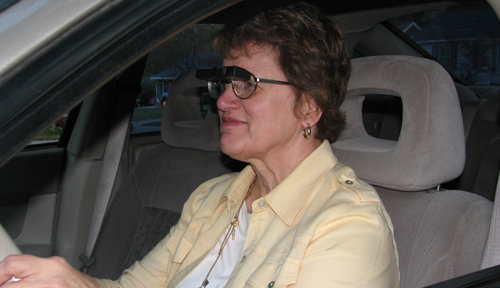The Weigel Williamson Center for Visual Rehabilitation at UNMC is now operating a low vision clinic in Lincoln.
“With the opening of this satellite clinic we are better able to serve the needs of the citizens of southeast Nebraska,” said John Shepherd, M.D., director of the center.
The satellite clinic, which opened last summer, is located in the Taylor Meadows Medical Center, 1101 S. 70th St., suite 200. The satellite clinic is open every Monday from 9 a.m. to 5 p.m. and additional days are added as needed.
|
Low vision affects nearly 2.9 million Americans, a number expected to double by the year 2030.
The professionals at the Weigel Williamson Center help people with low vision adapt to the remaining vision they do have and live full lives.
While there are several diseases that can cause low vision, the most common are diabetic retinopathy, glaucoma and macular degeneration.
“There are currently no cures for the eye diseases that cause low vision,” Dr. Shepherd said. “There are different avenues of treatment that can equip individuals to function better with their remaining sight.”
The goal of the Weigel Williamson Center, he said, is to help individuals maximize their residual vision by using devices, technology, training and counseling so they can regain their independence and lead active lives.
Low vision professionals can develop and implement a rehabilitation plan that identifies strategies and assistive devices appropriate for a person’s particular needs. Vision rehabilitation services include training to use adaptive devices, such as reading machines, bioptic lenses and lighted magnifiers, as well as teaching new daily living skills.
For more information about the Weigel Williamson Center or to make an appointment at the Lincoln satellite low vision clinic, call 402-559-2463 or visit the website.

Would the telescopic lens work for RP patients as well?
John Shepherd, M.D. provided this response to the question below:
The telescopic lens provides magnification of words and objects in the distance, and it would do so no matter what the underlying eye condition would be. However, for the RP patient, usually the peripheral vision is quite reduced. The telescopic lens will reduce the field of view even further, which can be problematic depending on the activity the individual wants to perform. If that activity is driving, for example, the telescopic lens would provide the ability to see a road sign more easily, but it would compromise the already reduced peripheral vision in the process. This would likely make it more unsafe to drive.